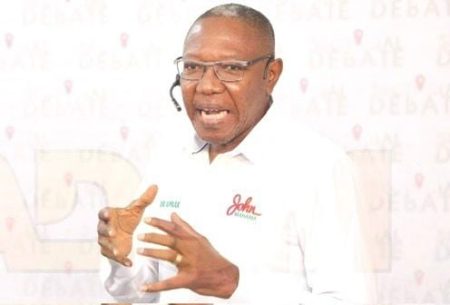The 2025 National Common Entrance Examination, a pivotal gateway for aspiring students seeking admission into prestigious Federal Government Colleges (Unity Schools) in Nigeria, has recently concluded, witnessing the participation of 64,000 candidates. This year’s examination, administered by the National Examinations Council (NECO), drew applicants not only from Nigeria but also from neighboring countries, Benin Republic and Togo, underscoring the regional appeal of these institutions. The examination process involved a meticulous evaluation of candidates’ academic aptitude and potential, aiming to select those best suited for the rigorous academic environment of Unity Schools.
The examination’s smooth execution was lauded by various stakeholders, including the Minister of State for Education, Professor Suwaiba Ahmad, who personally monitored the proceedings at designated centers. Expressing satisfaction with the orderly manner in which the examination was conducted, Professor Ahmad highlighted the punctuality and preparedness of both students and invigilators. The impressive turnout of 64,000 candidates, comprising 30,000 males and 34,000 females, signals the enduring value placed on Unity Schools by Nigerian parents, who recognize their crucial role in fostering national cohesion. The Minister emphasized that this robust participation reaffirms the public’s continued belief in the quality and unifying power of these educational institutions.
Providing further insights into the candidate demographics, NECO Registrar, Professor Ibrahim Wushishi, revealed that Lagos State accounted for the highest number of registered candidates, exceeding 15,000. While the overall participation numbers were commendable, the Republic of Togo recorded the lowest number of applicants, with only 17 candidates. Interestingly, a combined total of 109 candidates from Benin Republic and Togo, all Nigerian citizens residing in these countries, took part in the examination, reinforcing the regional scope of the exercise. Professor Wushishi underscored this aspect, stating that it affirms the extensive reach and esteemed reputation of Nigeria’s Unity Schools. He further reported the seamless execution of the examination, with materials arriving on time and no significant challenges encountered, providing optimism for the upcoming senior secondary school examinations.
The successful administration of the National Common Entrance Examination was not without meticulous logistical planning and coordination. Examination materials were dispatched to designated centers across the country well in advance, ensuring timely commencement. Invigilators were briefed on their responsibilities, emphasizing the need for strict adherence to examination protocols. Security measures were also implemented to maintain the integrity and credibility of the examination process. The proactive measures taken by NECO contributed significantly to the smooth and efficient conduct of the examination, minimizing disruptions and ensuring a fair assessment for all candidates.
The criteria for admission into the coveted Unity Schools encompass a multi-faceted approach, considering merit, state quota, and exigency. Merit, as a primary factor, ensures that the most academically deserving candidates gain access to these institutions. The state quota system aims to ensure equitable representation from all states across Nigeria, promoting diversity and inclusivity within the student body. Furthermore, the exigency clause provides special consideration for children of civil servants, recognizing their contributions to national development. This holistic approach to admissions aims to create a well-rounded student population, fostering unity and a sense of national belonging among students from diverse backgrounds.
In conclusion, the 2025 National Common Entrance Examination marked a successful milestone in the pursuit of quality education and national unity. The strong participation figures, coupled with the seamless administration of the examination, underscore the enduring appeal of Federal Government Colleges. The emphasis on merit, state quota, and exigency in the admission process ensures a balanced and representative student body, fostering a sense of national integration and shared purpose. The success of this examination augurs well for the future of education in Nigeria, as these young minds embark on their academic journey in institutions known for their academic excellence and commitment to national unity.














